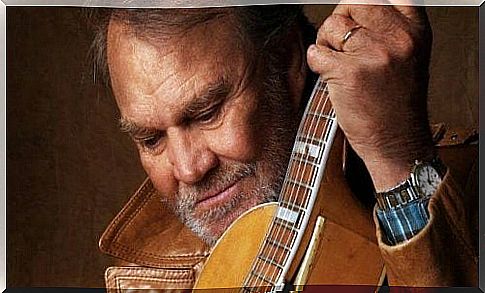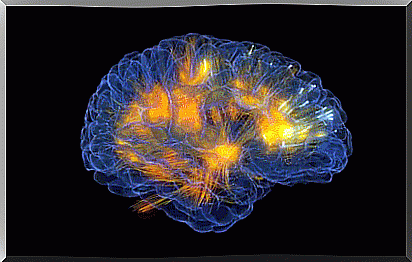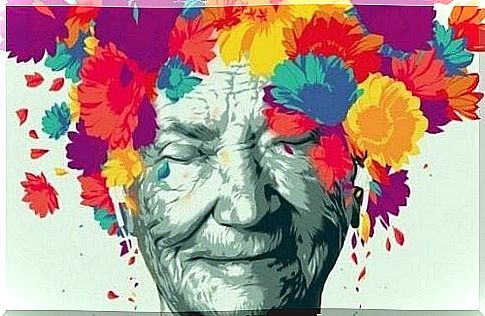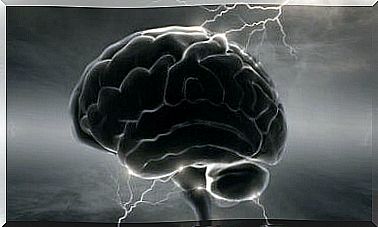Music And Alzheimer’s: The Awakening Of Emotions

Music and Alzheimer’s have a strange, powerful, fascinating relationship. Patients with advanced disease suddenly experience astonishing awakening to a song from their youth, that rhythmic music that, almost without knowing how, unlocks memories and cognitive abilities until they are envelop in an ocean of wonderful emotions …
Some say it is a mystery. Neurologists comment that our brain, for some reason we don’t yet know, preserves these areas of long-term visual memory intact. Psychologists, on the other hand, as well as therapists and relatives who care for these loved ones on a daily basis, know that music is above all a consolation for these people suffering from a devastating illness.
The name Glen Campbell may be familiar to you. He was one of the icons of country music in the United States in the 60s and 70s. He passed away a short time ago, after a hard cohabitation with Alzheimer’s. Her story could be any story, like that of so many people who, after having had a fabulous life full of successes, hardships and unforgettable moments, have to deal with a disease that erases or clouds memories.
However, Glen Campbell ‘s case was one of the most striking from a clinical point of view, and for a very concrete reason: he never stopped singing or playing the guitar. What is more, when he did, he regained some of his lucidity, to the point of being able to perform certain concerts in which he sometimes spoke with his audience, commenting that, oddly enough, he had managed to get rid of the alcohol, but not from this “hateful” disease.
A fascinating case, a story that invites us to ask ourselves what is behind this relationship between music and Alzheimer’s …

Music and Alzheimer’s, a mystery that is beginning to be solved
We have known this for a long time. Scientists have always known that there is a singular link between music and Alzheimer’s, a wall of restraint with which a strange agreement is reached: progressive brain degeneration does not affect these structures linked to long-term musical memory. However, a short time ago, thanks to new neuroimaging techniques, we were able to observe something as interesting as it was revealing.
According to a study carried out at the Max Planck Institute of Human Cognitive and Brain Sciences in Leipzig, we succeeded in replacing for the first time these areas linked to musical memory, discovering, as the researchers expected, that they were (almost) intact.
Dr Jörn-Henrik Jacobsen, responsible for this work, indicated that until very recently, the idea that our musical abilities were in the temporal lobes had been maintained. However, the diagnoses have very clearly shown something else: musical memory is found in the additional motor cortex. Alzheimer’s and its destructive shadow do not arrive with as much impact in this privileged area, in this magical corner of our brain. The loss of neurons is less important and the deposition of amyloid protein is not as affected. In other words, the function of this area remains active, in operation.

In addition, another interesting aspect that could be observed is the following: as the disease progresses by wearing out our cognitive processes, new connections appear in the gum convolution. It is as if the brain itself is trying, almost desperately, to preserve some of the essence of the person by activating these areas related to music and our emotions.
And this is where a trace of our vital breath remains, silently waiting for the music to wake us up for a moment, a wonderful fragment of time during which we can (almost and only almost) become ourselves again …
The benefits of music for patients with Alzheimer’s
We know one thing about the relationship between music and Alzheimer’s: the former influences our autobiographical register. There are moments in our life cycle that are linked to a song, a melody, a specific context, the people who created it and the emotions felt.
So when a person suffering from Alzheimer’s listens to a melody that is meaningful to them, in connection with their person and their past, this music manages to:
- Reduce anxiety and anxiety
- Decrease agitation
- Improve their mood and get the person to reconnect with those around them. What is most fascinating is that it is an emotional connection, a kind of awakening of feelings, pleasure and joy which, a few seconds before, were in total lethargy.
How can I help the person I love who has Alzheimer’s through music?
Once at this point and knowing that there is a very positive direct relationship between music and Alzheimer’s, it is possible that a large number of our readers with a loved one with this disease wish to enjoy a moment of connection. with him. What’s more, above all, we want to see how that smile plays out on her face.
Therefore, let’s take note of these standards that we can implement to do well:
- Think about your loved one’s musical preferences, those songs, melodies, ballads or concerts that are part of their life
- Choose the most suitable time, a moment of the day when it is quiet
- Create a conducive environment, free from external stimuli, in a peaceful and comfortable room
- Put on headphones for your loved one. The musical experience is more meaningful, the concentration is more intense and the effect stays in the brain longer
- Encourage movement, help him keep pace, clap your hands, make movements with the feet, or try dancing with him. The experience will be even more rewarding

Finally, pay close attention to his reaction. It is possible that certain music does not please him or that others invite him to react in a more positive way. Either way, the most important thing is that we are present with them, that we feel them in harmony with us and that, for a moment, we embrace them feeling how their essence and their authentic being emerge again …










